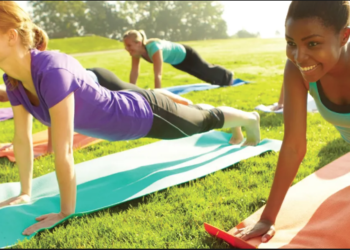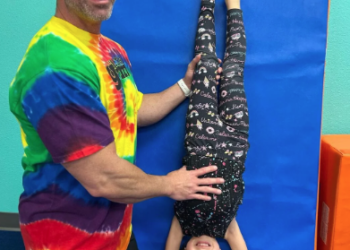As someone with Parkinson’s disease, Jill Smith, 68, knows the value of exercise. And on the days when she’d rather not move a muscle, she reminds herself of how good she’ll feel after walking on the treadmill or using the elliptical for 15 minutes. “No matter how poorly I feel before I exercise, I leave in a much better place,” says Smith, a retired telecommunications manager in Park Ridge, IL. “Reminding myself of that keeps me going back.” Joining a karate class for people with Parkinson’s also helps, she says.
Plenty of people lack motivation to exercise, but those with neurologic disorders may face more stumbling blocks, such as poor mobility and balance, muscle weakness, pain, depression, and feeling self-conscious or embarrassed, according to a 2016 study in Disability and Rehabilitation.
Knowing the benefits of physical activity may get people moving. A 2022 study in Neurology found that among people with Parkinson’s disease, regular exercise over time was associated with slower loss of postural and gait stability, better processing speed, and greater functionality in activities of daily living. A meta-analysis in Sports Medicine in 2022 found that endurance exercise, along with sensorimotor training, improved symptoms such as poor balance and pain, as well as quality of life, in people with neuropathy.
And a 2022 review in the International Journal of Environmental Research and Public Health found that yoga and aerobic and water exercise improved balance and walking ability in people with multiple sclerosis (MS). Exercise also improves cognitive function in adults over age 50, according to a 2018 meta-analysis in the British Journal of Sports Medicine.
Still sitting on the couch? Consider these strategies from physical therapists.
Identify your goals. Ask yourself what you want to get out of exercise. Maybe you want to reduce pain, increase strength, prevent falling, or just be able to play with your young children or grandchildren. Write down your goals and post them in prominent places, suggests Samantha Salvaggio, a life coach who has had MS since she was 19.
“So many things are working against you when you have a chronic illness. Remembering my purpose is helpful when I don’t want to exercise,” says Salvaggio, 36, a chronic-illness coach in Durham, NC. “If I don’t move, I feel like I’ll lose coordination, balance, and strength. I want to stay strong and connected to my body.”









